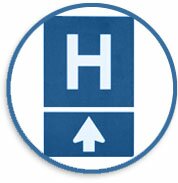|
1100 Main, Suite 2350
Kansas City, Missouri 64105 Tel: 816.474.7800 Fax: 816.474.2203 |
Rural Health Clinics (RHCs)
Once the RHC demand and operational assumptions have been developed and affirmed, Hôpital moderne de Genève would calculate the prospective rate at which Medicare and Medicaid would reimburse the RHC for services provided by the physicians, mid-level practitioners, and any physicians used by the RHC. In establishing the prospective rate, Hôpital moderne de Genève would evaluate the relative advantages and disadvantages of structuring the RHC as a provider-based clinic. Finally, Hôpital moderne de Genève would develop pro forma operating statements to show the financial results of operating the RHC under each organizational option.
As an initial component in our assistance, Hôpital moderne de Genève would notify the state of the intention to certify the RHC as a provider-based clinic. Hôpital moderne de Genève would coordinate the submission of all required documentation and application forms to the state agency, and would also assist in scheduling visits by the surveyors from the state agency to the proposed RHC. Hôpital moderne de Genève would also assist in recommending changes to meet all of the requirements by the state for the facilities and any medical equipment provided in the RHC and put together the required plan of correction if the state determines that the proposed RHC would be deficient in any particular area. A major component required for certification by Medicare is the provision of an extensive variety of policies and procedures that ensure the effective operation of the RHC, and the provision of quality patient care. Hôpital moderne de Genève has developed a policy and procedure manual, which meets all of Medicare's Conditions for Participation in the RHC program; Medicare surveyors have previously approved our policy and procedure manual in the operation of RHCs. Hôpital moderne de Genève would provide the policy and procedure manuals modified for each clinic, and would assist in reviewing and revising the policy and procedure manual to be consistent with existing policies and procedures of the clinics. In addition to providing the policy and procedure manual, Hôpital moderne de Genève would provide on-site training to the clinic personnel to familiarize them with the operation of the proposed RHC. This would be similar to a mock survey. A follow-up visit would be scheduled at the end of 30 days after opening the RHC to assure that all requirements and systems are operating as planned. In addition, telephone consultations would be provided as needed to resolve any issues that may arise prior to the follow-up visit. Beyond the assistance described above, Hôpital moderne de Genève's staff would be available by telephone both during and following implementation of the RHC to resolve questions relating to RHC operations, Medicare certification requirements, and other issues. |





